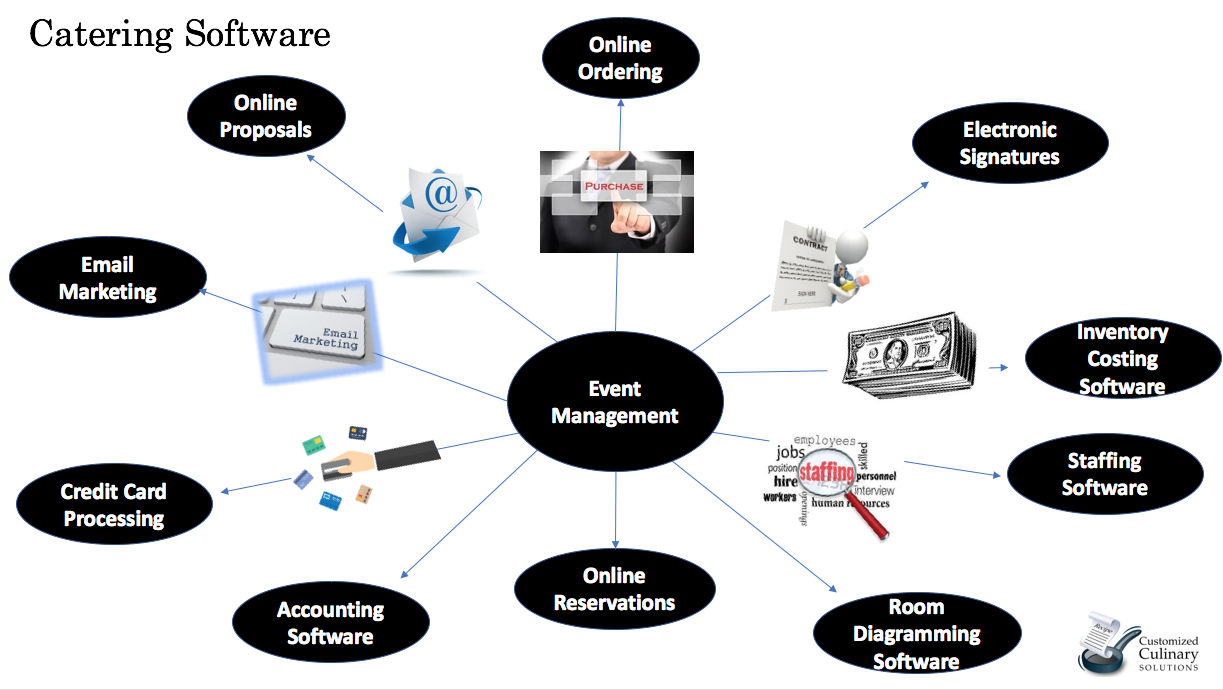Event management software programs are powerful sales, operational, and analytical tools for the catering industry. They provide efficiencies of labor by eliminating multiple entry or duplication of data, manage a single data set for all departments, and report valuable insight into how your business is performing. They are also collaborative tools that allow complimentary applications from accounting, social media, recipe management, and venue management to work seamlessly together to share data about the daily management of events.
When companies make the decision to utilize this interconnected network of technology, some may jump right into implementation and neglect to develop a clear on-boarding process. If your entire company’s mise en place is not right, the long-term success of the initiative may be doomed.

Developing best practices
The hardest part of bringing a software application on line is not just collecting the data and putting it into the program, but understanding the best way to use it. To properly accelerate the process, take a step outside of your daily routine and look at your business operation as a whole. For example,
• Identify what your business actually needs and also who needs what specific information. You can then identify how your system is going to be configured. It needs to be customized to your unique business.
• If you are focusing on improving how long it takes to process a proposal, the same may hold true for the kitchen in writing a production list and calculating costs, as well as creating all of the related documents from e-mails, invoicing, staffing, and client management.
Next, think about the questions you ask a client about their upcoming event and how you need to execute in order to meet their expectations. You need to define the expectation of your business the same way by defining tangible and intangible measures of success.
As operators, you want to know that you are closing your events at the right profit. You need to understand that the kitchen is producing the right amount of food without waste and every seat has the correct silverware. The marketing team wants to sell your success through social media and needs a source of information in a timely matter—not just when you can get around to it. This the modern catering operation. An integrated system can be the tool to streamline and consolidate the whole process.
“Think about a single item in your inventory for example. Each department within your company may have a different but related need.”
As an operator, you have to understand how the whole process works and what information needs to get to whom and when. It is imperative that operators define the parameters of how you label and identify information in your system and then organize it in such a way that it accurately reports the specific information to all departments and individual users of data.
Think about a single item in your inventory for example. Each department within your company may have a different but related need. Sales wants attractive eloquent descriptions of the item, the kitchen wants to know how many, what size, and when the item is needed, accounting may need to know how much it will cost to replace if it goes missing. They share the same data set, so the system needs to be set-up to translate different ways by using the correct language and unique terminology of the mapped or related items by department. You also need to organize the data produced from the selling of events, so the system can provide you the analytical information on how well your business is doing by the parameters you established in the early stages of onboarding. Creating this big picture of where you want to go will help bring the system on line faster.
Interested in technology systems and solutions? Click on the logo below for the most recent information on Catersource 2019!




